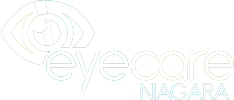Most people should have a comprehensive eye exam every one to two years, depending on age, risk factors, and vision needs. Regular check-ups help detect early signs of eye conditions, monitor vision changes, and support overall health.
Eye exams are about more than just updating your prescription—they’re a proactive way to protect your sight and catch potential issues early. Knowing when to book your next appointment can make a big difference in your long-term eye health.
Why Regular Eye Exams Are Important?
Many people overlook their eye health until they experience vision problems or discomfort. However, regular eye exams are vital for catching potential issues early, even before symptoms appear.
Consider this staggering statistic: 1 in 7 Canadians has some form of vision-threatening eye condition, including glaucoma, cataracts, and age-related macular degeneration. Early detection of these conditions through routine eye exams can help preserve eyesight, ensure timely treatment, and significantly improve quality of life.
It’s not just about staying glasses-ready; it’s about maintaining the health of your eyes for years to come.
Factors That Influence Eye Exam Frequency
How often you should visit the optometrist depends on several factors, including your age, health conditions, and family history of eye diseases.
- Age: Children, adults, and seniors all require different schedules for eye exams due to varying risks associated with different life stages.
- Family History: A family history of conditions like glaucoma or macular degeneration may demand more frequent monitoring.
- Health Conditions: Diseases such as diabetes or hypertension can also significantly affect eye health; in these cases, frequent exams are recommended.
Your optometrist will assess your unique needs and create a personalized schedule to ensure your vision and eye health remain in optimal condition.
General Guidelines for Eye Exam Frequency
The Canadian Association of Optometrists provides specific guidelines for how often you should schedule your eye exams:
Children (Aged 0-19)
- Recommendation: Twice before age 5, then annually.
Children’s eyes are still developing, and regular check-ups are crucial for detecting early issues that could impact their vision or learning.
Adults (Aged 20-64)
- Recommendation: Every 2 years, unless specific health risks are present.
Regular exams help ensure that your prescription lenses are current and detect any early signs of eye conditions.
Seniors (Aged 65+)
- Recommendation: Annually.
With age comes an increased risk of cataracts, glaucoma, and age-related macular degeneration. Yearly exams help manage these risks effectively.
These guidelines serve as a baseline, but always follow the advice of your optometrist, who tailors recommendations to your specific needs.
Benefits of Regular Eye Exams
Regular eye exams offer so much more than just updating your glasses prescription. Here are some of the key benefits:
- Early detection of diseases: Conditions like glaucoma or diabetic retinopathy often show no symptoms in their early stages but can be detected during routine exams. Early intervention can prevent vision loss.
- Comprehensive health evaluation: Eye exams can reveal signs of underlying health conditions such as high blood pressure, diabetes, or even certain cancers.
- Improved quality of life: Maintaining your vision allows you to stay independent, enjoy activities like reading or driving, and maintain your overall well-being.
Think of an eye exam as an investment in your health—not just your eyes.

Overcoming Common Barriers to Eye Exam
Despite the numerous benefits of regular eye check-ups, many Canadians fall behind on their appointments. Here are some common challenges and how to address them:
- Lack of awareness: Many people don’t realize the importance of eye exams until they experience vision problems. Education is key. Share this information with your family and friends!
- Busy schedules: Life can get hectic, but scheduling an exam months in advance and setting reminders can help keep you on track.
- Cost concerns: Financial limitations can be a barrier. Check if insurance or local programs offer free or low-cost eye exams. In Ontario, OHIP covers eye exams for children (under 19), seniors (65+), and adults (20-64) with certain conditions like diabetes or glaucoma.
By taking steps to prioritize your eye health, you can overcome these obstacles and keep your vision crystal clear.
What to Expect During an Eye Exam
If it’s been a while since your last exam, you might wonder what to expect. While specific tests may vary, a comprehensive eye exam typically includes:
- Medical history review: Your optometrist will ask about your health, medications, and any vision issues.
- Visual acuity test: This test checks how clearly you see at various distances.
- Refraction assessment: Determines your prescription for glasses or contact lenses.
- Pupil response and eye muscle tests: These tests assess the functionality of your eye muscles and how your pupils react to light.
- Slit-lamp examination: Examines the front structures of your eye, like the cornea and lens.
- Retinal examination: Your optometrist will check the back of your eye, often requiring dilation.
- Eye pressure test: Measures pressure inside your eye to detect glaucoma.
The above tests provide us with an understanding of your eye health and help us recommend the best course of action.
Protect Your Vision for the Future
Prioritizing routine eye exams is one of the simplest yet most effective steps you can take to protect your vision and overall health. From early disease detection to personalized care, these appointments are essential for maintaining healthy eyes.
Don’t wait until you notice a vision issue to schedule your next exam. Whether you’re booking for yourself, your child, or an aging relative, consistent care makes all the difference.
Book your eye exam today with one of the experienced optometrists at EyeCare Niagara in St. Catharines. Your eyes will thank you!




